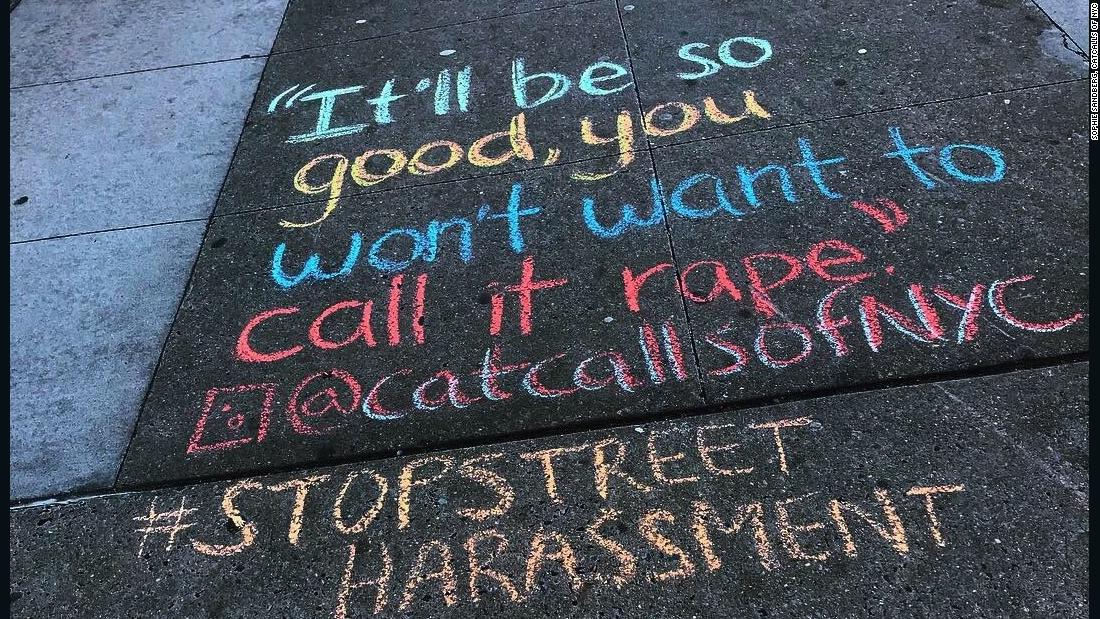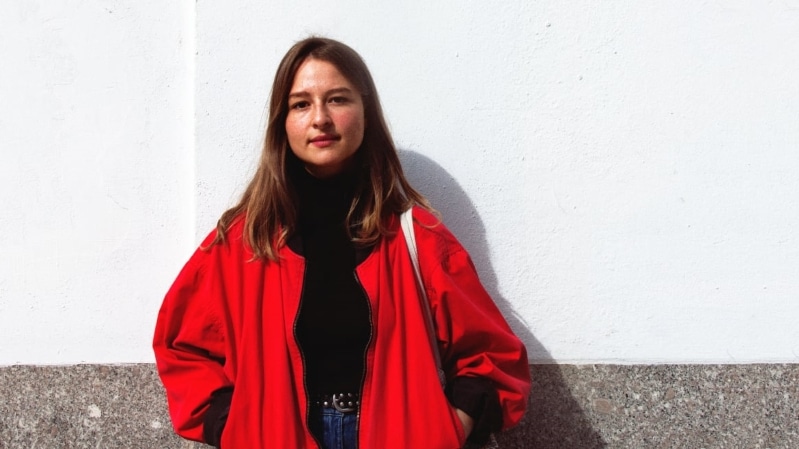
I was 15 years old and walking to the first day of my summer job. I was thinking about making a good impression on my boss. I had painstakingly picked out my outfit: a purple sun dress and white espadrilles. The nervous rush of excitement brought about by my acquaintance with adulthood was quickly interrupted as I got off the number 1 train at 18th street and 7th Avenue in New York City. “Hey, beautiful!” “You’re sexy” “Gorgeous” “Mmmmm.” These are some of the many comments I heard on my walk to work that day. My first thought was to respond ‘thank you.’ After all, these comments sounded like compliments. But in these moments, they felt nothing like compliments. I felt uncomfortable: like my body was under surveillance. Each new block made me more self conscious. I wanted to hide. Quickly, I started to think there must be something about what I was wearing that was provoking this harassment. Was my dress too short or too tight? When I got home that night and told my parents, they suggested I ignore it. My dad even said I should ‘dress down’ to avoid provoking unwanted attention.

Years later, for a freshman year writing assignment, I decided to do something about the harassment I was facing. Frustrated by feeling silenced, I decided to respond to catcalling in a creative way. I started to collect catcalls, both from my experiences and from those of friends, and write them on the streets with chalk where they were being shouted, along with the hashtag #stopstreetharassment. The colorful chalk would mark the spots where someone was harassed. It would catch people’s attention and bring to light something that is normally ignored. Then, I would post their images on Instagram to illustrate the catcalling spectrum, highlighting comments from “hey beautiful” to “I want to f*ck the sh*t out of you.” The combination of public art and Instagram would be a method of raising awareness. It would make people confront this problematic behavior and educate them about how frequent and invasive this behavior is. I could provide victims of harassment a space to share their story and start a dialogue about harassment.

As a 19 year old student, I never could have predicted the impact that this project would have. At first, writing in chalk was a way for me to feel empowered when so much of my agency in public space had been taken away. But this project has become so much bigger than me. In December, 2017, almost two years after I started my project and shortly after the #MeToo movement went viral, @catcallsofnyc got picked up by international press; @catcallsofnyc went from having 800 followers to over 10 thousand in just one week. This growth proved that the account was providing something that many people around the world needed. Much like my younger self; many folks facing harassment felt isolated by these experiences. They were ashamed to tell people because they felt it was somehow their fault.

Being one voice among many makes the fight against street harassment louder and harder to ignore, and this feeling of empowerment is contagious. I began receiving messages from people asking, “Can I bring this initiative to my city?” Accounts started sprouting up around the world. Catcalls of London, Catcalls of Amsterdam and Catcalls of Paris were some of the first to launch. Soon after, Catcalls of Mauritius, Catcalls of Berlin, Catcalls of Mumbai. Catcalls of Iran. Catcalls of Cape Town, South Africa, and Catcalls of Dhaka, Bangladesh began . Now, there are over 100 programs around the world that also collect stories of harassment and document them on the streets. My idea, which I now call “Chalking Back,” has been a springboard for young activists around the world to fight back against harassment, creatively.
More than half of the women who run these programs are under the age of 18, and 88% of people are under the age of 25. They represent a wide variety of racial and religious groups and, because of them, what was originally a class project has become a global movement. The bravery and commitment of everyone involved in “Chalk Back” has built this movement from the ground up.
Last week, I graduated from New York University (NYU) with a degree in Gender and Sexuality, and after working on this project for three years as a full-time student, I have decided to commit my time to turning “Chalk Back” into an international non-profit to provide additional resources for the movement which will allow it to grow. Our mission is to allow young people to advocate for cultural change within their communities, and ultimately end street harassment through creative means such as chalk events and workshops. It is a community and youth-led project, based on our personal experiences.
We have been harassed. We have been disempowered. We have been objectified. Now, we will amplify our unique experiences to come together as a collective whole.

Sophie Sandberg, a recent graduate of New York University, is an activist, organizer and professional speaker. She founded Catcalls of NYC, a viral Instagram account and initiative which seeks to raise public awareness about street harassment using street art.


